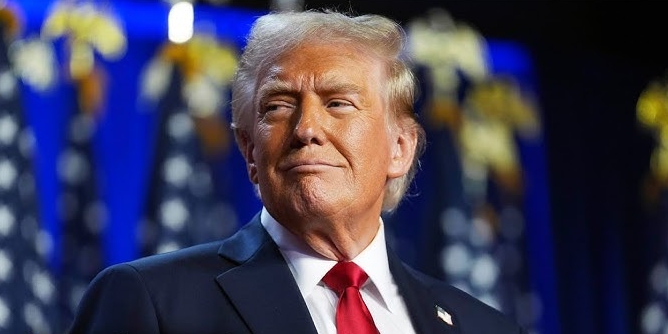Tension between Indiana University and its student newspaper flared this week with the elimination of the outlet’s print editions and the firing of a faculty adviser, who refused an order to keep news stories out of a homecoming edition. Administrators may have been hoping to minimize distractions this homecoming weekend as the school prepares to celebrate a Hoosiers football team with its highest-ever national ranking. Instead, the controversy has entangled the school in questions about censorship and student journalists’ First Amendment rights.
Advocates for student media, Indiana Daily Student alumni and high-profile supporters including billionaire Mark Cuban have blasted the school for stepping on the outlet’s independence. The Daily Student is routinely honored among the best collegiate publications in the country. It receives about $250,000 annually in subsidies from the university’s Media School to help make up for dwindling ad revenue.
On Tuesday, the university fired the paper’s adviser, Jim Rodenbush, after he refused an order to force student editors to ensure no news stories ran in the print edition tied to the homecoming celebrations. “I had to make the decision that was going to allow me to live with myself,” Rodenbush said. “I don’t have any regrets whatsoever. In the current environment we’re in, somebody has to stand up.”
A university spokesperson referred an AP reporter to a statement issued Tuesday, which said the campus wants to shift resources from print media to digital platforms both for students’ educational experience and to address the paper’s financial problems. Chancellor David Reingold issued a separate statement Wednesday saying the school is “firmly committed to the free expression and editorial independence of student media. The university has not and will not interfere with their editorial judgment.”
It was late last year when university officials announced they were scaling back the cash-strapped newspaper’s print edition from a weekly to seven special editions per semester, tied to campus events. The paper published three print editions this fall, inserting special event sections. Rodenbush said Media School officials started asking why the special editions still contained news. He said that Tolchinsky argued Rodenbush was essentially the paper’s publisher and could decide what to run, which Rodenbush refuted, asserting that those decisions were the students’ alone.
Rodenbush was fired on the eve of the homecoming print edition and announced the end of all Indiana Daily Student print publications, though online publishing continues. Student journalists see this as a blatant attack on freedom of the press. Andrew Miller, the Indiana Daily Student’s co-editor-in-chief, labeled Rodenbush’s termination a “deliberate scare tactic toward journalists and faculty.” Legal experts affirm that the censorship infringes upon First Amendment rights.
Blocked from publishing a print edition, the paper has been posting stories online, including critiques of university policies, campus safety issues, and allegations of plagiarism involving university officials.
Advocates for student media, Indiana Daily Student alumni and high-profile supporters including billionaire Mark Cuban have blasted the school for stepping on the outlet’s independence. The Daily Student is routinely honored among the best collegiate publications in the country. It receives about $250,000 annually in subsidies from the university’s Media School to help make up for dwindling ad revenue.
On Tuesday, the university fired the paper’s adviser, Jim Rodenbush, after he refused an order to force student editors to ensure no news stories ran in the print edition tied to the homecoming celebrations. “I had to make the decision that was going to allow me to live with myself,” Rodenbush said. “I don’t have any regrets whatsoever. In the current environment we’re in, somebody has to stand up.”
A university spokesperson referred an AP reporter to a statement issued Tuesday, which said the campus wants to shift resources from print media to digital platforms both for students’ educational experience and to address the paper’s financial problems. Chancellor David Reingold issued a separate statement Wednesday saying the school is “firmly committed to the free expression and editorial independence of student media. The university has not and will not interfere with their editorial judgment.”
It was late last year when university officials announced they were scaling back the cash-strapped newspaper’s print edition from a weekly to seven special editions per semester, tied to campus events. The paper published three print editions this fall, inserting special event sections. Rodenbush said Media School officials started asking why the special editions still contained news. He said that Tolchinsky argued Rodenbush was essentially the paper’s publisher and could decide what to run, which Rodenbush refuted, asserting that those decisions were the students’ alone.
Rodenbush was fired on the eve of the homecoming print edition and announced the end of all Indiana Daily Student print publications, though online publishing continues. Student journalists see this as a blatant attack on freedom of the press. Andrew Miller, the Indiana Daily Student’s co-editor-in-chief, labeled Rodenbush’s termination a “deliberate scare tactic toward journalists and faculty.” Legal experts affirm that the censorship infringes upon First Amendment rights.
Blocked from publishing a print edition, the paper has been posting stories online, including critiques of university policies, campus safety issues, and allegations of plagiarism involving university officials.





















